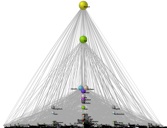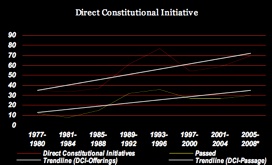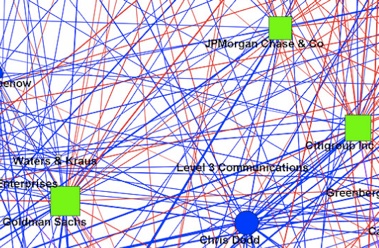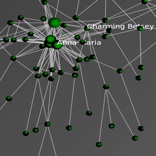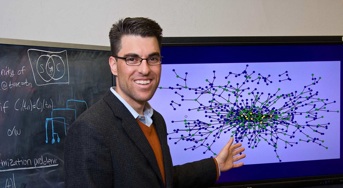

Legal commentators have long studied the complexity of law and legal systems. Notwithstanding the significant contributions made by prior scholars, I believe that extensive empirical inquiry into the complexity of the law still remains to be undertaken.
Borrowing principles from the fields of complexity theory and information theory, I am currently crafting a series of papers aimed at measuring the size and complexity of various bodies of law including statutes and administrative regulations.
One primary philosophical justification for law and the state is related to the relationship between the complexity of legal rules and the complexity of the society those rules seek to regulate. Thus, using these and other measures, I hope to explore the nature of this relationship.
Whether metaphorical or explicit, we often discuss doctrinal change in evolutionary terms. Network science and evolutionary graph theory provide a rigorous analytical framework with which scholars can track social and political processes such as the development of precedent in common law systems.
Welcome to my new website. My name is Daniel Katz and I am a PhD Candidate in Political Science & Public Policy at the University of Michigan. I am also a Fellow in Empirical Legal Studies at University of Michigan Law School and an IGERT - National Science Foundation Fellow at the Center for the Study of Complex Systems. Prior to entering the Ph.D. program, I obtained both a J.D. from the University of Michigan Law School and a M.P.P. from the Gerald R. Ford School of Public Policy.
(B) Judicial Citation Networks
In addition to the development of specialized methods, I am interested in their substantive application. For example, in a recent article, I highlight the pivotal central position of admiralty / maritime law in United States Supreme Court’s network of citations. Through the prism of various admiralty / maritime related cases, the early Court places either direct or indirect gloss on a number of important principles including the scope of presidential authority, the scope of Congressional authority, the Treaty Power as well as federal jurisdiction.

This website is dedicated to my research and teaching. Click on the various highlighted links to access my CV, papers, project pages and teaching portfolio.
(A) Social Structure of Important Constitutive Institutions
The development of legal systems cannot be divorced from the self-organized social structure relevant actors generate. The micro-motives as well as the professional and social interactions between legal elites helps to generate, at least in part, systemic changes in the common law. Thus, I am interested in exploring the social structure of legal elites and their role in supporting the diffusion of various legal principles. Such legal elites include members of the judiciary, law professors as well as many others.


I am interested in both the theoretical and empirical analysis of constitutional, statutory and administrative law making processes. This includes the role of special interest groups in encouraging legislative behavior that is either offensive (supporting legislation) or defensive (modifying, delaying legislation).
In addition to traditional legislative and administrative processes, I have also conducted research on American Direct Democracy. In a recent article, I observe that at an increasing rate, citizens are modifying their constitutions through the most direct of direct democratic processes. I argue the erosion of the distinction between normal statutory rules and higher order constitutional rules may impede the healthy functioning of American state governments.
I believe the analysis of judicial citation networks can help enrich positive legal theory. Yet, it is important to acknowledge that legal systems are not static objects. As such, my co-authors and I have developed particularized methods that allow for the dynamic exploration of judicial citation networks including their microscopic, mesoscopic and macroscopic properties.
My research interests include network analysis and law, the complexity of the law as well as analysis of various constitutional, statutory and administrative law making processes. Below are some brief highlights from my research.





